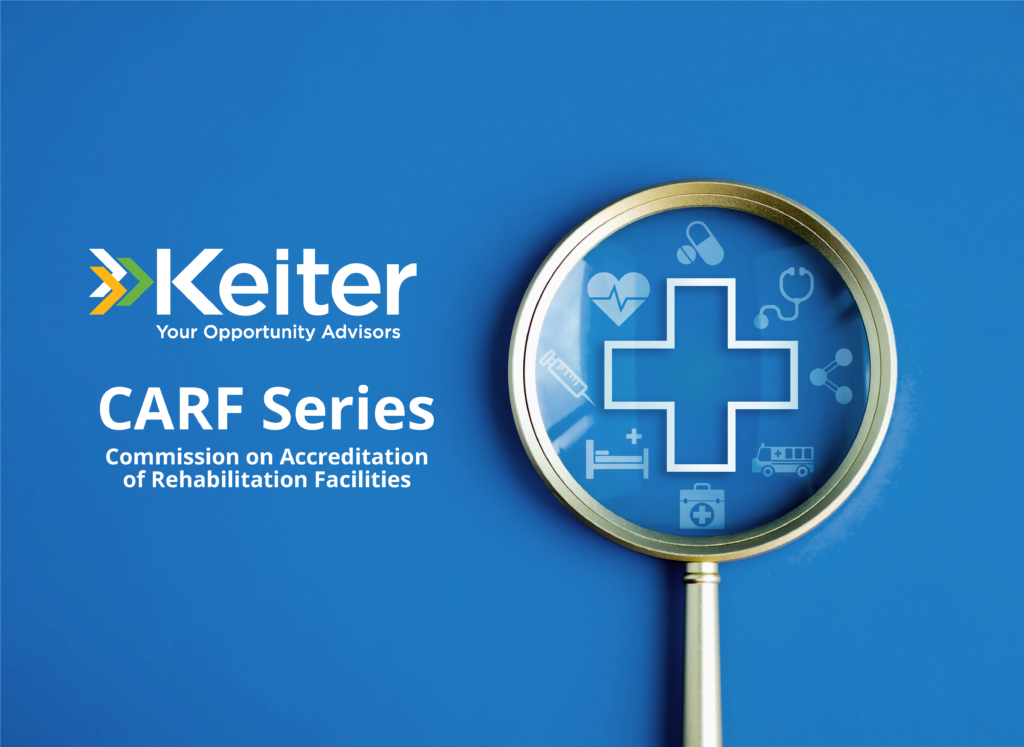
Article 2 in our series on CARF accreditation
How proactive tax strategies benefit CARF-accredited healthcare organizations
Beyond tax compliance, CARF-accredited healthcare organizations can benefit from developing proactive tax strategies to maximize savings and ensure long-term financial stability. From identifying tax credits to optimizing financial reporting, working with a specialized CARF tax advisor is essential.
Key tax strategies for CARF healthcare organizations
1. Maximizing available tax credits
CARF-accredited organizations often qualify for a variety of tax credits, especially in areas such as employee retention and healthcare-related research and development. Identifying and utilizing these credits can significantly reduce tax liability. For example:
- Employee Retention Credit (ERC): Available to organizations that retained employees during the COVID-19 pandemic. Note that the statute of limitations for claiming ERC generally expires on April 15, 2025
- Research & Development (R&D) Credit: Applicable to healthcare organizations conducting innovative medical research or implementing new technologies.
2. Unrelated business income (UBI) management
UBI is income from any business that is unrelated to the charitable purpose of a tax-exempt entity. Properly managing UBI is essential to avoid unexpected tax bills and potentially losing tax-exempt status. Organizations should develop strategies to minimize UBI or channel it into activities that align with their exempt purposes. For instance, a CARF-accredited rehab center that offers fitness classes to the general public could classify this revenue as UBI, but a strategic review with a tax specialist might identify ways to reduce the taxable impact.
3. Charitable contributions and planned giving
Many healthcare organizations and their owners benefit from charitable donations. Structuring these contributions properly, whether through donor-advised funds, charitable remainder trusts, or endowments, can provide significant tax benefits. A specialized tax advisor can help optimize these contributions to minimize tax liabilities while benefiting the organization’s mission.
Tax strategy planning with a CARF tax specialist CARF-accredited organizations face unique financial and regulatory challenges. Engaging a tax advisor who specializes in healthcare and understands the nuances of CARF accreditation can ensure that your tax strategies align with compliance requirements, while also driving long-term financial growth.
With effective tax strategies, CARF-accredited healthcare organizations can improve their financial performance while maintaining compliance with federal and state regulations. A specialized CARF tax advisor can identify opportunities for tax savings and ensure that your organization remains aligned with both accreditation and financial goals.
Questions? Keiter’s Healthcare & Medical Services tax team can help your CARF-accredited practice. Contact us. Email or Call: 804.747.0000
About the Authors
The information contained within this article is provided for informational purposes only and is current as of the date published. Online readers are advised not to act upon this information without seeking the service of a professional accountant, as this article is not a substitute for obtaining accounting, tax, or financial advice from a professional accountant.




